Revisiting the Basics of B-BBEE
As the leader of a South African company, it’s essential to grasp the significance of obtaining Broad-Based Black Economic Empowerment (B-BBEE) certification. B-BBEE represents a government initiative aimed at fostering a fairer and more inclusive economy, offering improved opportunities to historically marginalized individuals within South Africa.
Embracing B-BBEE isn’t just about your company; it’s about contributing to the betterment of the entire nation. Let’s delve deeper into why the B-BBEE Act exists, who must comply with it, and what the various elements of the B-BBEE Scorecard entail.
What is the purpose of the B-BBEE Act?
Broad-Based Black Economic Empowerment (B-BBEE) is a comprehensive policy framework designed to redress historical economic inequalities stemming from the era of apartheid in South Africa. At its core, B-BBEE seeks to level the economic playing field.
The cornerstone of B-BBEE in South Africa is the Broad-Based Black Economic Empowerment Act, No 53 of 2003 (referred to as the “B-BBEE Act”), and its accompanying regulations known as the Broad-Based Black Economic Empowerment Regulations (referred to as the “B-BBEE Regulations”). These regulations provide guidance on the practical implementation of B-BBEE.
The B-BBEE Act’s primary objectives include driving economic transformation and ensuring meaningful participation of black individuals in South Africa’s economy. This is achieved by increasing black ownership and management in businesses, fostering engagement of communities and employees in economic activities, and promoting skills development. The term “black people” in the B-BBEE Act encompasses various groups, such as Africans, Coloureds, and Indians, who meet specific criteria, including South African citizenship.
What is a B-BBEE certificate?
A BEE Certificate, also known as a Broad-Based Black Economic Empowerment Certificate, is a document issued in South Africa to assess and verify a business’s level of compliance with the country’s Broad-Based Black Economic Empowerment (B-BBEE) Act. This Act was enacted to address historical economic imbalances and promote economic transformation by advancing the economic participation of Black South Africans, including African, Coloured, and Indian individuals, as well as women, youth, and people with disabilities.
The BEE Certificate is an important part of South Africa’s economic policy and is often required in various business transactions, including government tenders and contracts. It measures a company’s commitment to promoting diversity, equity, and inclusivity in its operations and ownership structure.
The BEE Certificate is typically issued by accredited verification agencies. The level of compliance is expressed on the certificate using a scorecard or rating, usually on a scale of levels from Level 1 to Level 8. Level 1 indicates the highest level of compliance and commitment to B-BBEE principles, while Level 8 indicates the lowest.
Having a higher BEE rating is often advantageous in South Africa’s business landscape as it can lead to increased business opportunities, better access to government contracts, and enhanced business relationships. However, achieving and maintaining a high BEE rating can require significant effort and investment in the areas mentioned above, and the specific requirements may change over time as government policies evolve.
Who should obtain a B-BBEE certificate?
In general, South African companies, regardless of their size or industry, should consider obtaining a B-BBEE certificate if they fall under any of the following categories:
Companies Doing Business with the South African Government: If your company wants to participate in government procurement, it will likely need a B-BBEE certificate. Many government tenders and contracts require a certain B-BBEE score as a prerequisite for bidding.
Companies Seeking to Attract Investors: Some investors, particularly those focused on socially responsible investments or those looking to align with B-BBEE objectives, may require a B-BBEE certificate from the companies they invest in.
Companies Engaging in Commercial Transactions: If your company engages in commercial transactions with other businesses in South Africa, having a good B-BBEE score can be advantageous. Many companies prefer to do business with suppliers and partners who have strong B-BBEE credentials.
Companies Committed to Corporate Social Responsibility (CSR): Businesses that want to demonstrate their commitment to social responsibility and economic transformation in South Africa may obtain a B-BBEE certificate voluntarily.
What are the elements of the B-BBEE Scorecard?
The B-BBEE Scorecard serves as the assessment framework for companies operating under the Generic Codes of Good Practice charter. It encompasses five distinct elements, each assigned a specific weight. Points are awarded based on meeting requirements within each element, culminating in an overall B-BBEE score on a scale from 0 to 100.
Ownership (25 points): This evaluates the extent of black South Africans’ ownership and control within the company, considering the percentage of black ownership and the influence wielded by black shareholders.
Management Control (15 points): This assesses the inclusion of black South Africans in senior managerial roles, with points awarded based on the presence of black executives, non-executive directors, and the authority held by black managers.
Skills Development (20 points): This element measures the company’s investment in enhancing the skills of its black workforce, with points awarded based on financial commitment to training and developmental initiatives for black employees.
Enterprise and Supplier Development (40 points): This category evaluates how much the company supports black-owned enterprises and suppliers, with points granted for financial support and utilization of black-owned suppliers.
Socio-economic Development (5 points): This element assesses the company’s contributions to endeavors like education, healthcare, and community advancement, with points allocated based on financial resources allocated to these initiatives.
The bottom line
It’s important to remember that the information provided here is a concise overview of B-BBEE. It’s a complex and evolving area tailored to the dynamic South African landscape. If you have further questions about B-BBEE compliance, please don’t hesitate to reach out to our BEE123 team. We’re here to assist you in crafting an effective B-BBEE strategy tailored to your company’s unique needs.




